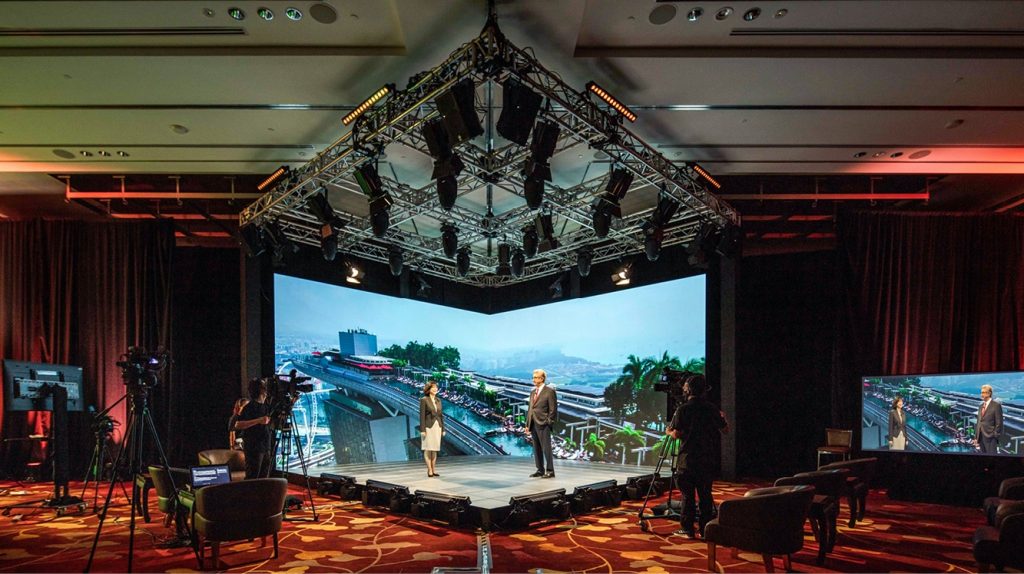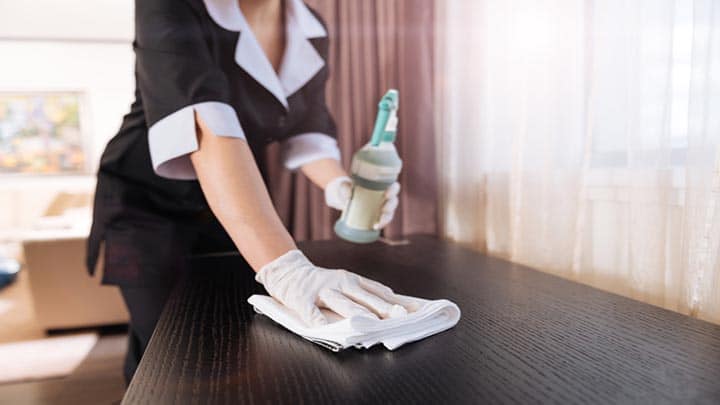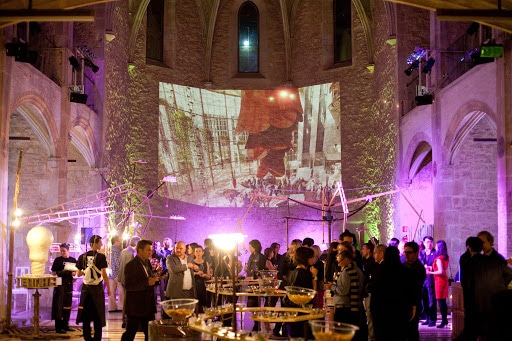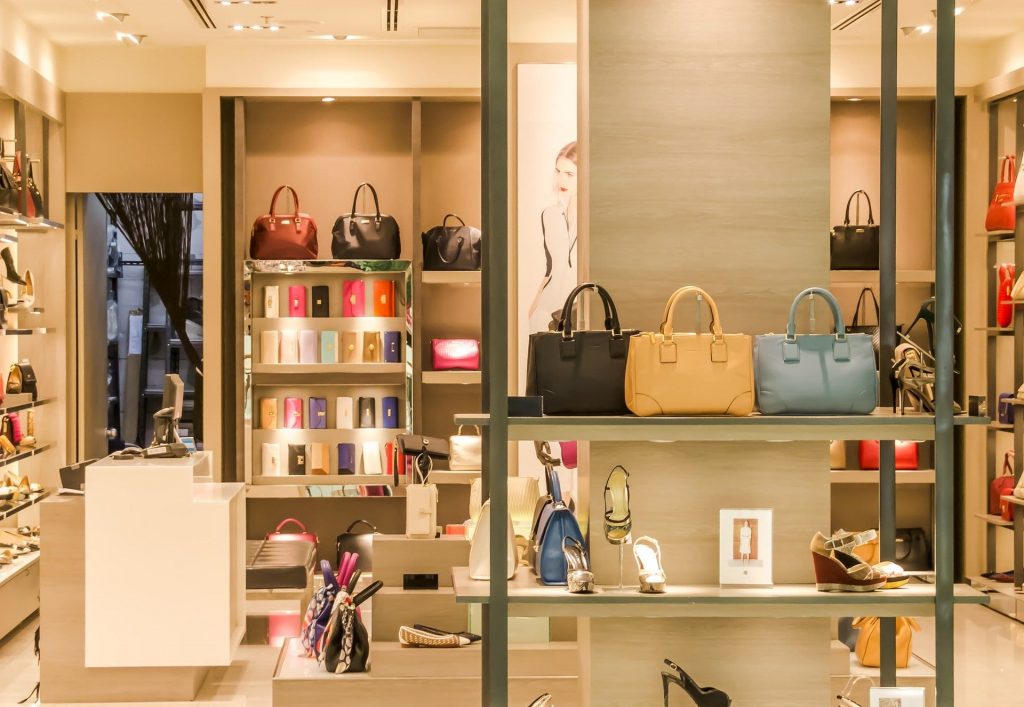As we approach the last quarter of 2020, fatigue towards news regarding Covid-19 has increased, but luckily the industry has evolved from its setbacks and bouncing back with new initiatives to revive consumer and business confidence in the travel and hospitality industry.
From the launch of the broadcast studio at the famous Sands Expo and Convention Centre, to the initiation of more and more safety labels for hotels and destinations, life in the Covid-19 era may not seem so bleak after all.
Changes in the consumer behaviour of the Chinese have been warned a few years back, and finally the results have spoken with a drop in luxury buying exacerbated by the Covid-19 pandemic. Putting focus on a variety of markets should be the preferred approach, and it always will be.

Credits Biz Events Asia, Marina Bay Sands
Marina Bay Sands has launched a state-of-the-art hybrid event broadcast studio at Sands Expo and Convention Centre. Designed to accommodate a live studio audience with a maximum capacity of 50 persons at any one time, the hybrid broadcast studio offers broadcast-quality, live-streaming capabilities and hologram functionalities.
Ong Wee Min, Vice President of Conventions & Exhibitions, MICE at Marina Bay Sands, said the studio was co-created and conceptualised together with the industry as a way to reimagine the future of meetings and events.
“We firmly believe that live events will return, but every successful live event in the future will have to include a virtual element to allow planners to engage a wider audience,” he said. As far as pricing is concerned, he says MBS doesn’t take a “cookie-cutter approach” and will work with clients to create an experience that meets their needs and budgets.
To help prepare the team for the future of events, more than 30 sales and MICE staff are currently undergoing PCMA’s Digital Event Strategist (DES) certification. The team will thereafter be equipped with the requisite skills, knowledge and proficiency to help clients conceptualise, plan and co-create new hybrid meeting and event designs.
The hardworking and resilient culture in Singapore has helped the country to contribute new ideas in face of a crisis and the launch of the hybrid event studio is an apt example reflecting Singapore’s cultural values.
Read More: M&C Asia

Credits EIQSH
The Malaysian Association of Hotels (MAH) has launched the Clean & Safe Malaysia hygiene and safety label, which is a certification programme designed specifically for hotels and resorts in compliance with both local regulatory requirements and international standards.
Bureau Veritas Malaysia has been appointed by MAH as the independent auditor for the country’s first-ever industry wide hygiene and safety label.
Yap Lip Seng, CEO of MAH, says, “There is a need to reassure tourists that Malaysia is ready, and the Clean & Safe Malaysia label is the mark to look out for, with a clear message to the world that Malaysia welcomes you, make us your next destination of choice.”
In the face of the covid-19 crisis, a trusted and respected safety label that addresses sanitary concerns is paramount at the moment. Working with a reputed agency such as Bureau Veritas further strengthens the credibility of such a label.
Read More: TTG Asia

Credits Pacific World
Renowned TUI Destination Experiences has confirmed that Pacific World will cease operations with effect from November 2020 as a result of the disruption to the business events industry caused by the Covid-19 pandemic. Pacific World has been recognised globally as one of the leading Destination and Event Management companies with strong family values at its core. They have an office based in Monaco.
This announce came on the heels of the company’s decision in mid-August to shut down Pacific World Hong Kong operations from September 14.
Read More: TTG MICE

Credits Pixabay
Luxury in the post-Covid-19 era: the pandemic may have changed upscale buying forever.
The days of China buying up all that bling are certainly over for now. While reports and research predicted a continued upscaled growth for luxury products, predominantly led by Chinese spending, the current purchasing and travelling landscape have created a dramatic shift.
According to the Altagamma Foundation, Chinese nationals represent about 50% of demand for Swiss watches compared to about 35% for the rest of the luxury sector. As travel worldwide is now put to a halt, the travel retail sector, an important driver for the luxury industry as a whole, has seen the lack of tourists causing a dip in sales and revenue.
In addition, China’s stringent policy on frugality and clamping down corruption has pushed the ruling class toward a novel form of discreet wealth, keeping the sales of more ostentatious luxury goods hidden from view or not being purchased in the first place, which could worsen China’s post-COVID-19 luxury market recovery.
As a silver lining, the quality of the Chinese customer base has been progressively changing. They are more educated, more demanding, but less forgiving and less loyal. In a world of uncertainty and economic decline, it is important to appeal to people’s “feel good” sense of social and environmental morals: same applies to the Chinese.
Brands must become even stronger in telling their story, in offering true values, in understanding the customer and its current sensibility towards issues of transparency, fair trade, and other issues.
It will take time for the luxury industry to rise back to the forecast from last year, particularly for luxury buying. However, luxury travel and experiences will continue to be a mainstay for the Chinese.
It is also worthy to note of the risks of focusing too much on the Chinese market for growth. Looking beyond China as the main market into Southeast Asia and South Korea for instance, will be beneficial to the market growth in general.
Read More: Forbes, Jing Daily
